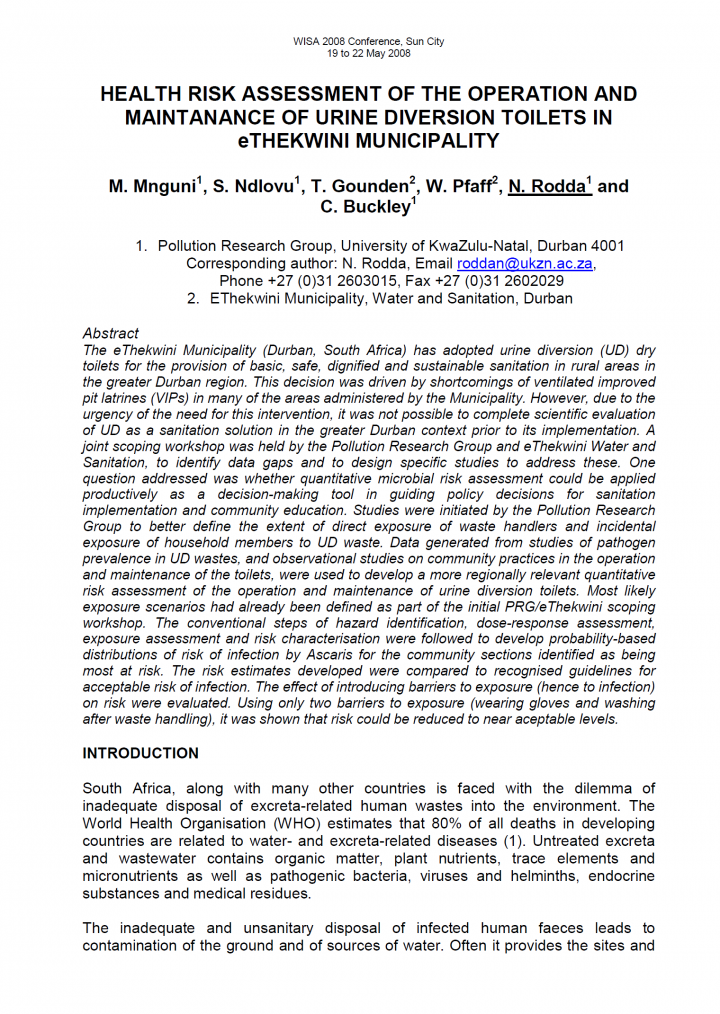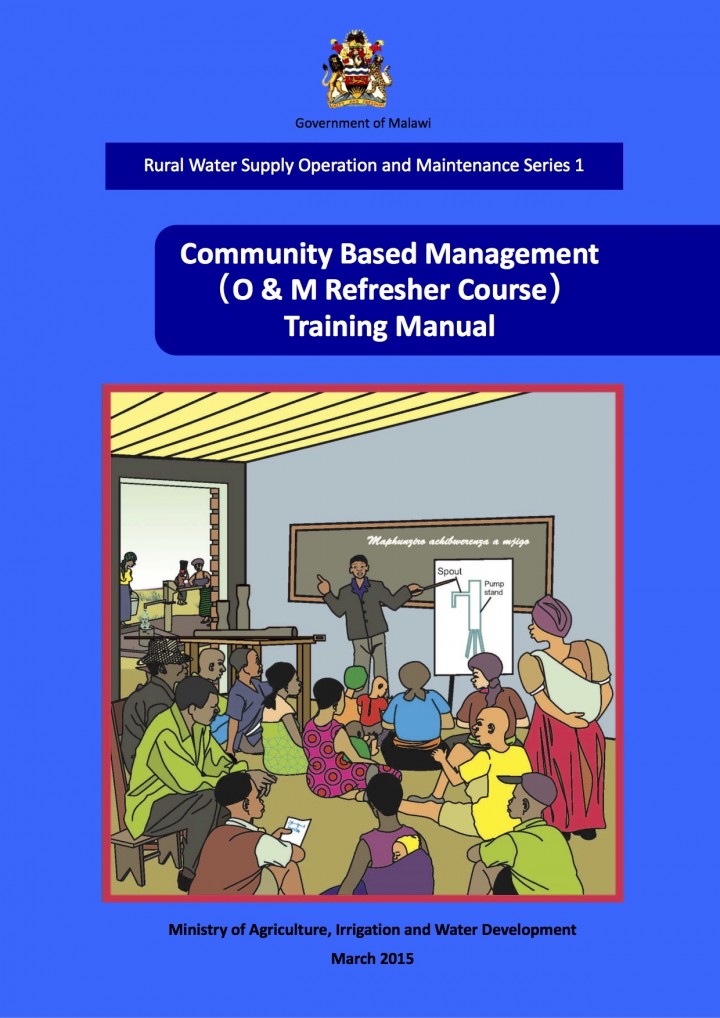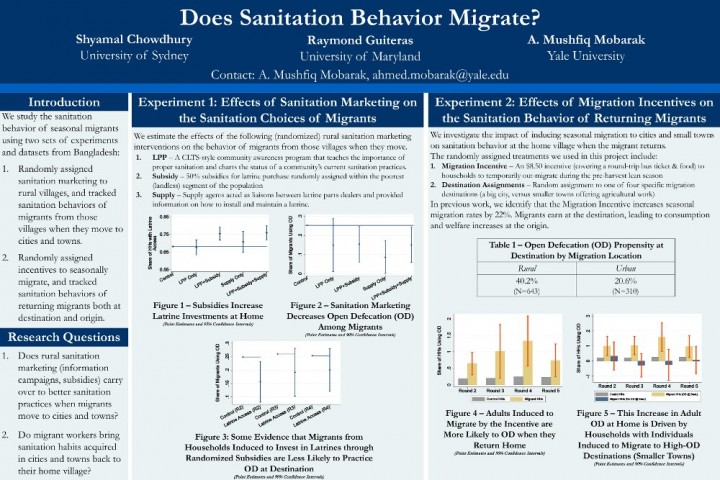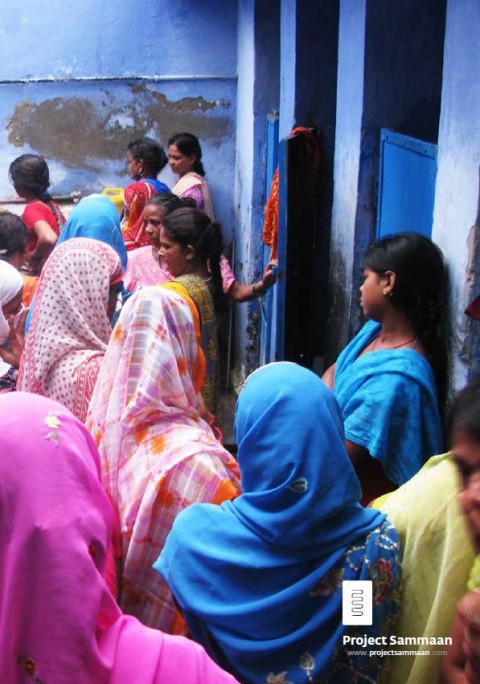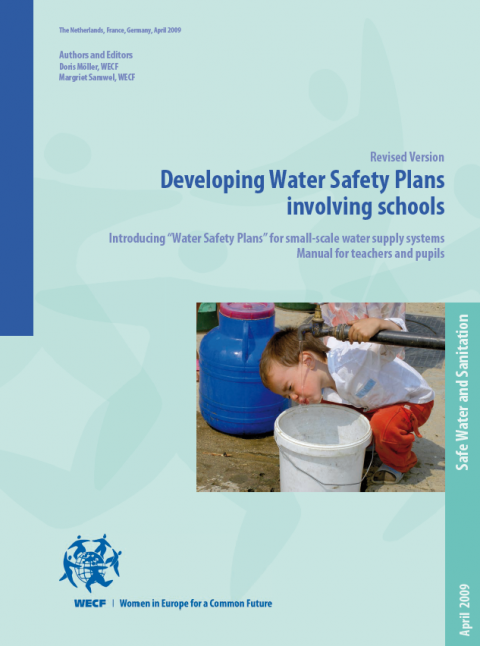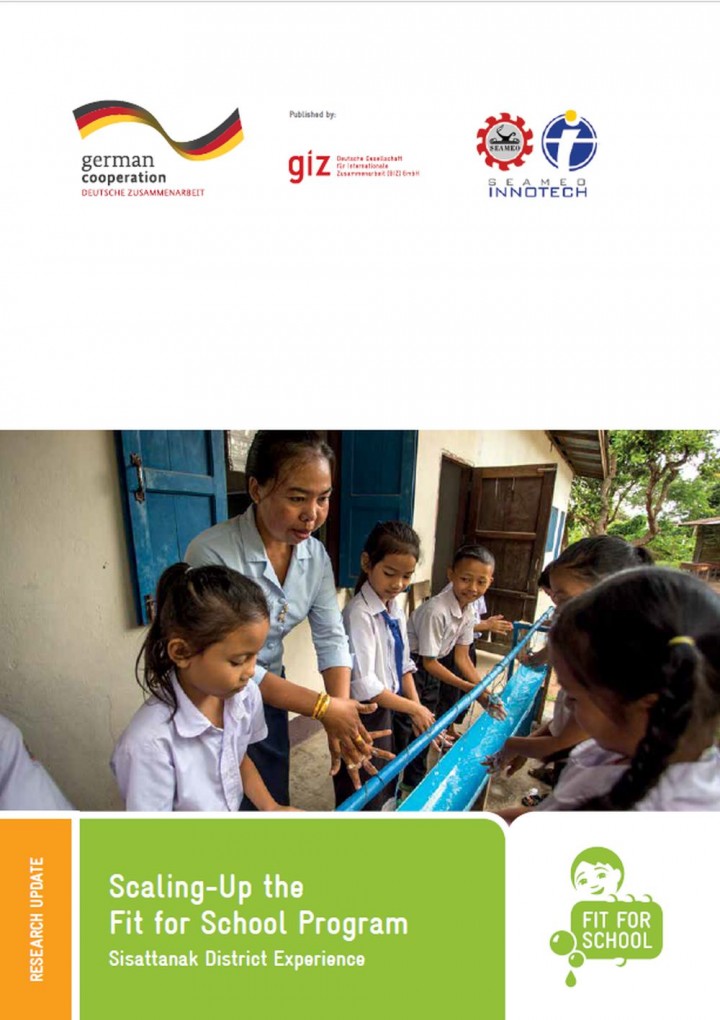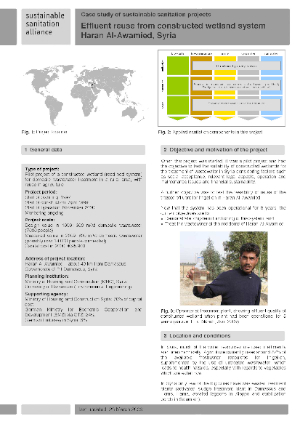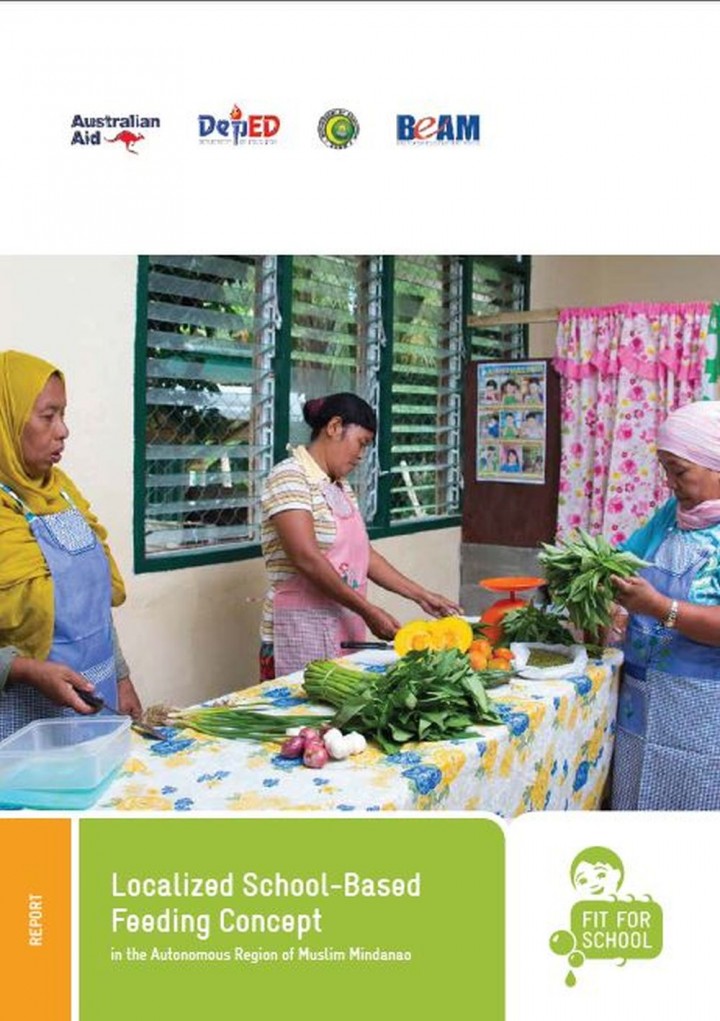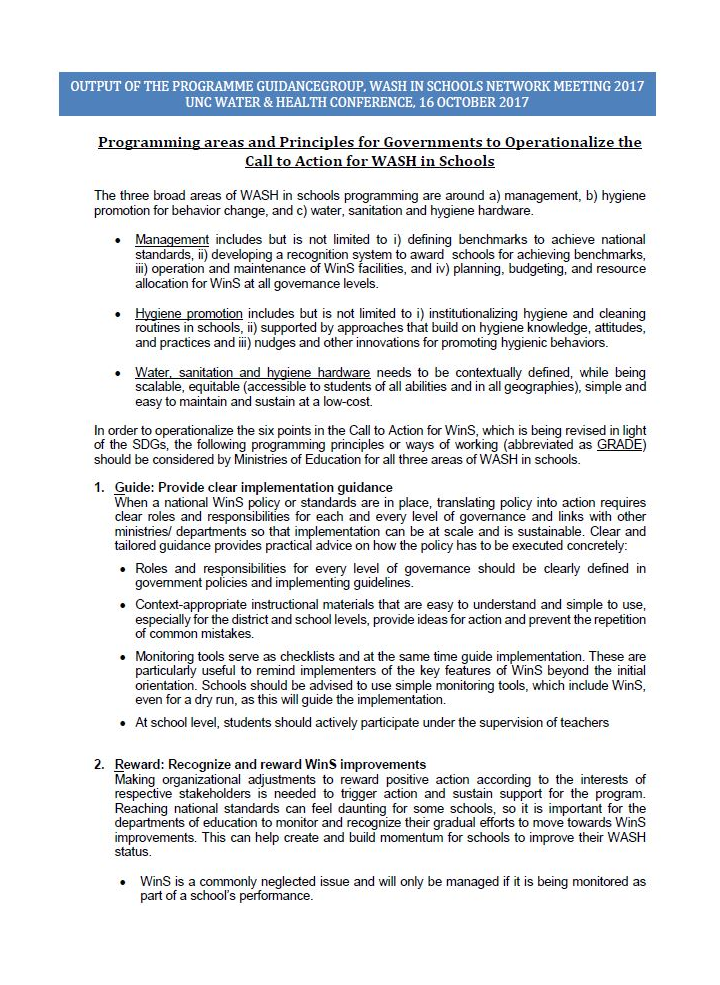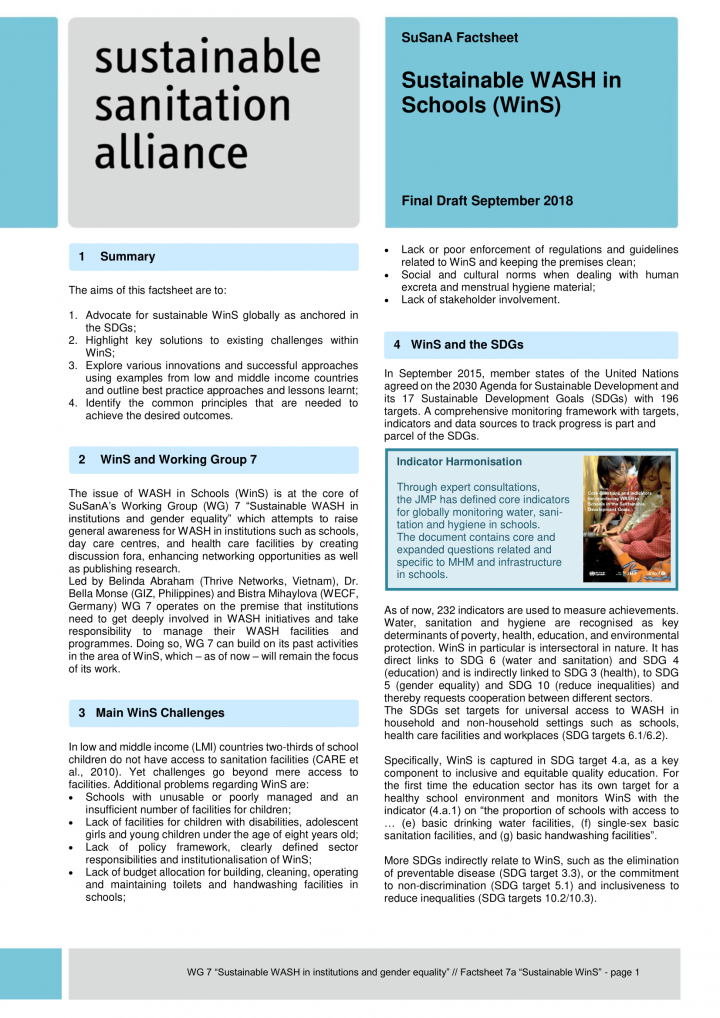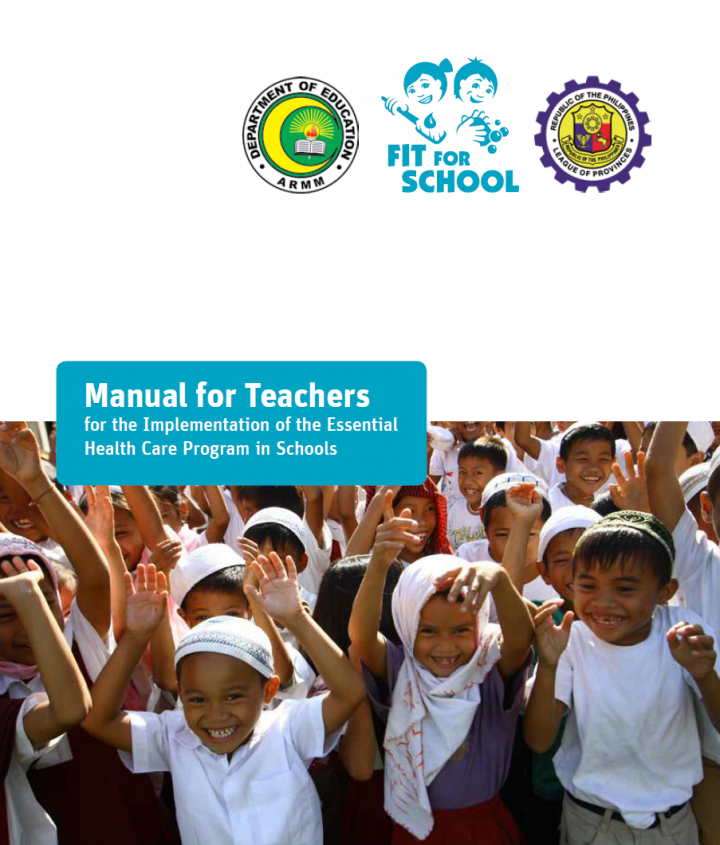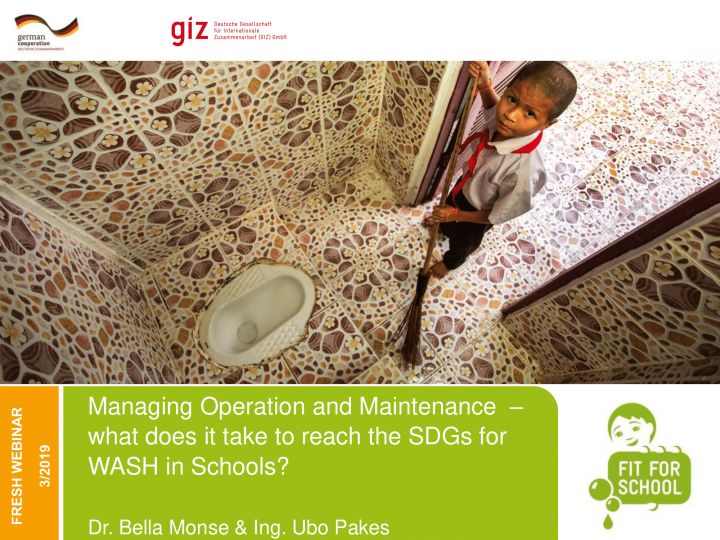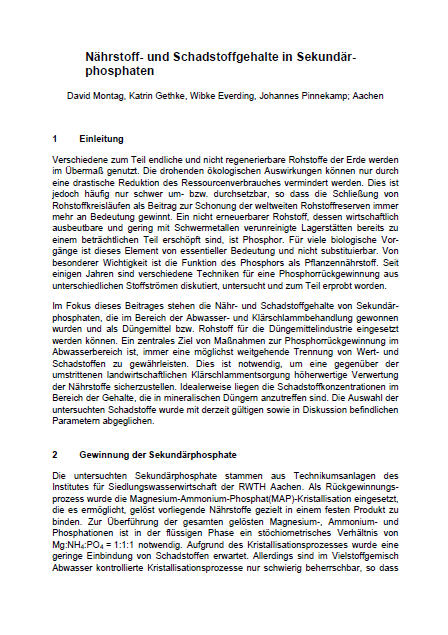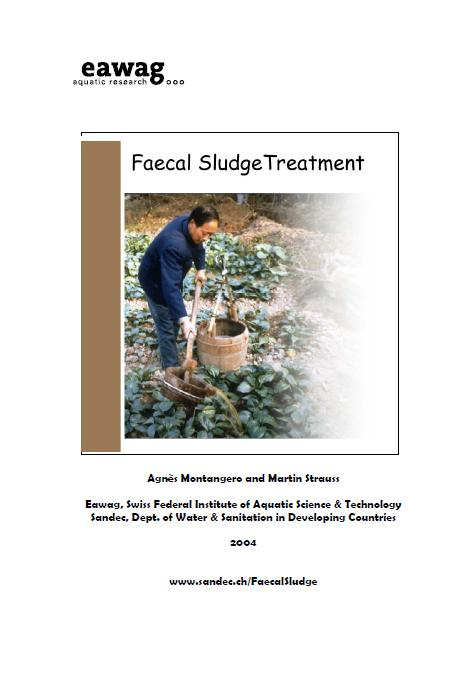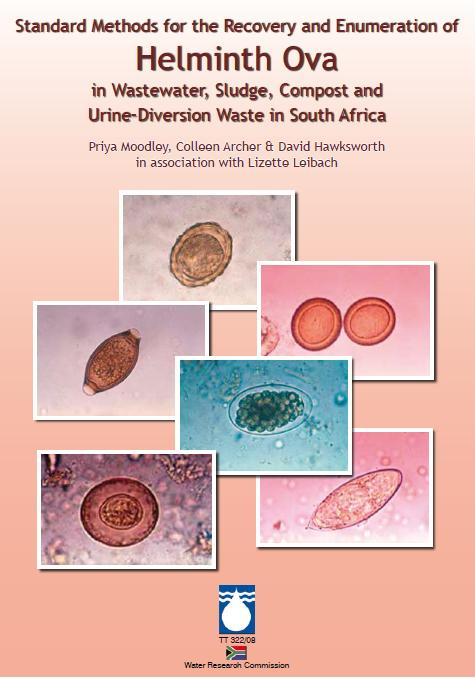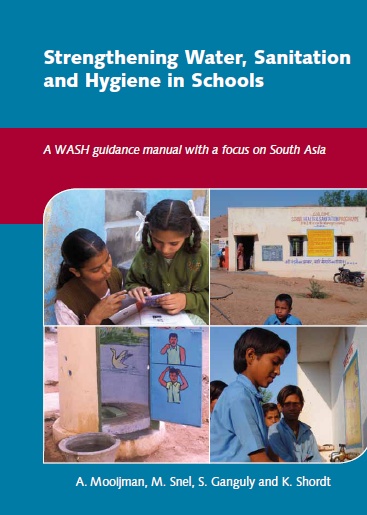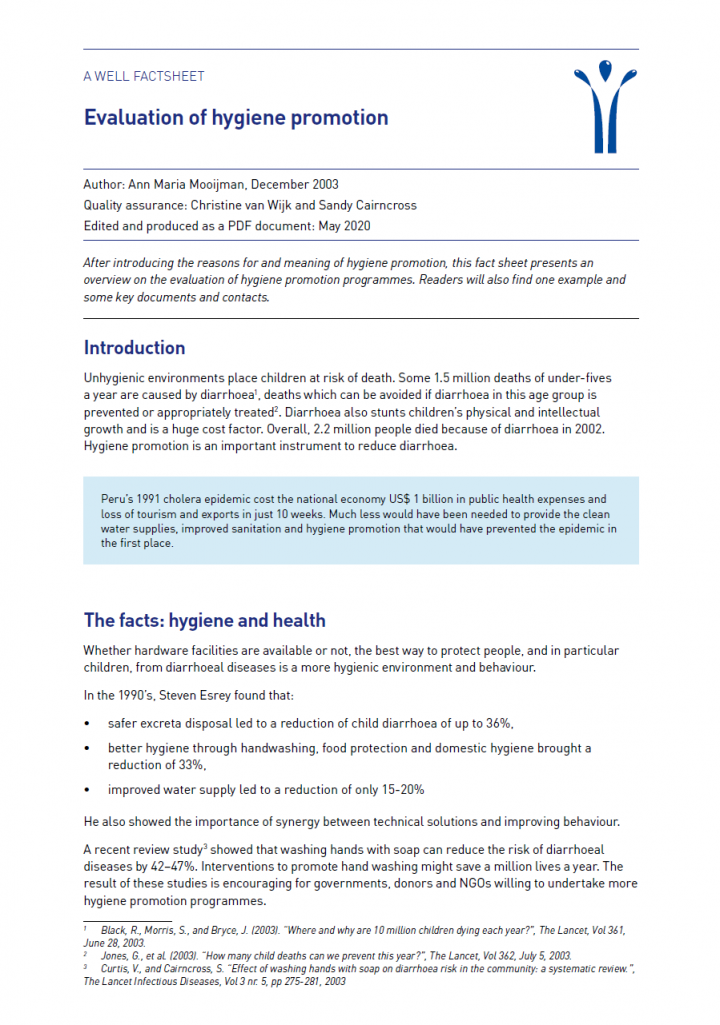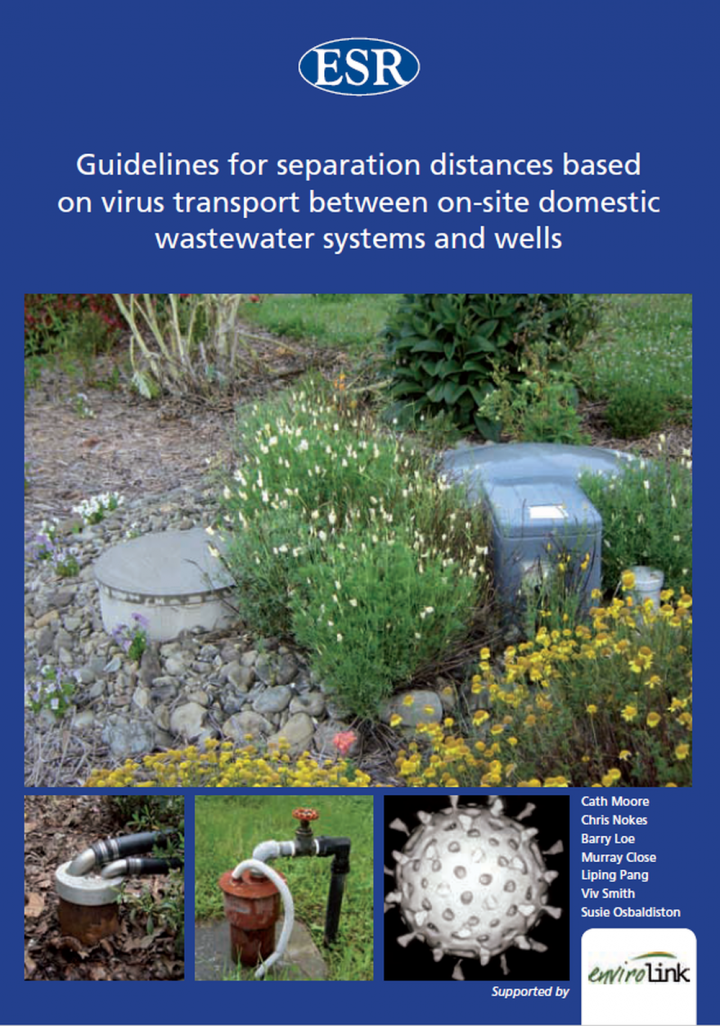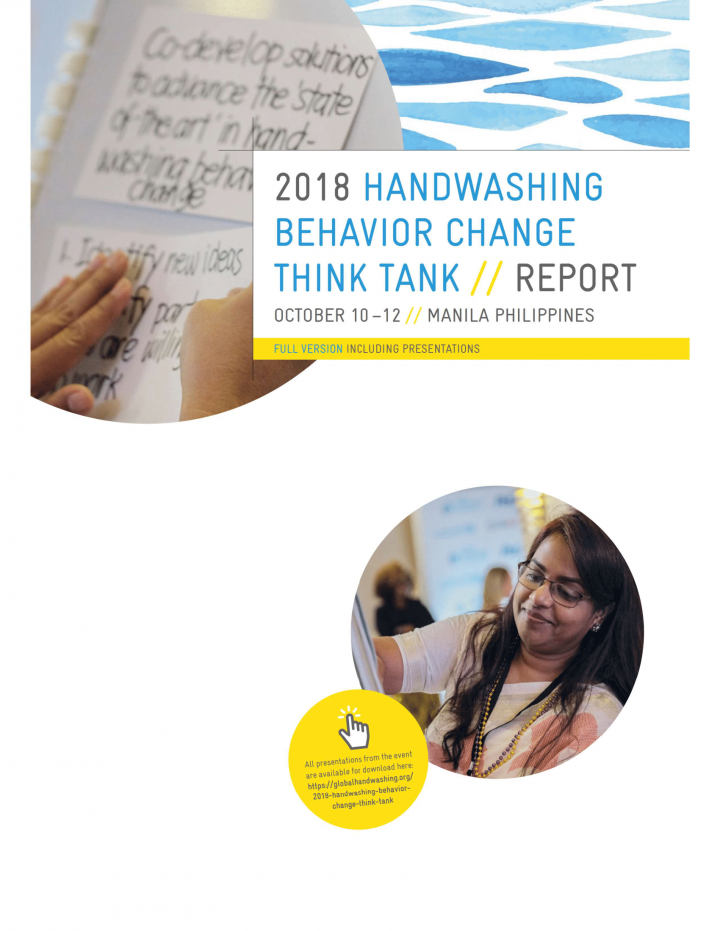Searching for information on Sanitation Workers?
The Sanitation Workers Knowledge + Learning Hub is the best source for all current news, trends, articles and updates on sanitation workers rights around the world.
Many of the schools visited have a population of students of more than 500, of which 300 are female pupils and 200 are male pupils. Furthermore, with a total number of 8 members of staff, of which 3 are male and 5 are female teachers.
With the problem analysis, Maboshe Memorial Centre (MMC) is hoping to lobby for donor funding to conduct a 2 to 3 years project in the seven Primary Schools …
Currently, the community based management (CBM) training is provided to the beneficiaries only when the water supply facilities are first constructed (before and after construction). However, several years could pass after construction before the water supply facilities begin to deteriorate and break down, requiring maintenance. Therefore, it is likely that, for a few years after construction, …
“The question now is not whether school health programs are necessary... but how they can be implemented at meaning scale. This is the challenge that we now face,” (Bundy, 2011, p. xiv). This quote reflects a key issue in the field of school health and WASH in Schools (WinS), especially in countries where resources are limited compared to the challenges in this field. Often good practices can …
This manual has been designed by the Ministry of Health and Sanitation (MoHS), UNICEF and GOAL to help support Natural Leaders during the pre-triggering, triggering and follow-up of CLTS communities. The following pages will give simple examples of how to carry out each stage of CLTS. The booklet is not meant to be a script to read out whilst triggering however. A good natural leader will use his …
Making schools healthy environments requires a holistic approach that should combine various interventions to ensure that children are fit for school. However, these interventions must be simple, scalable, sustainable, and integrated into existing systems to ensure that they can be feasibly implemented by school communities with limited resources. Increasing its usefulness could only be possible …
The aims of this factsheet are to:
1. Advocate for sustainable WinS globally as anchored in the SDGs;
2. Highlight key solutions to existing challenges within WinS;
3. Explore various innovations and successful approaches using examples from low and middle income countries and outline best practice approaches and lessons learnt;
4. Identify the common principles that are needed to …
Education and health go hand in hand. Children need to be healthy to be fit for school. Sadly, too many children in the Philippines are afflicted by everyday ailments that impact largely on their physical and mental development and limit them from getting the most from their education. The majority of Filipino children very often suffers from worm infections, severe tooth decay and from …
This FRESH webinar will Introduce a costing tool to calculate the budget need for schools to provide the basic service level for drinking water, usable sanitation, and handwashing with soap. The tool provides school heads with an easy to manage app, which calculates the annual cost per student depending on local condition and local prices.
How much do they need to keep aside for consumables, …
Unhygienic environments place children at risk of death. Some 1.5 million deaths of under-fives a year are caused by diarrhoea, deaths which can be avoided if diarrhoea in this age group is prevented or appropriately treated. Diarrhoea also stunts children’s physical and intellectual growth and is a huge cost factor. Overall, 2.2 million people died because of diarrhoea in 2002. Hygiene …
The discharge of domestic wastewater to ground and the proximate abstraction of groundwater for domestic purposes can contaminate drinking water. Regional councils need to consider these situations when implementing the National Environmental Standard (NES) for Sources of Human Drinking Water (NZ Government, 2007). Separation distances between wastewater discharges and groundwater abstractions …
The Global Handwashing Partnership Think Tank series brings together hygiene experts from civil society, government, research institutions, and the private sector to drive learning and action in handwashing behavior change. The 2018 Think Tank was hosted in Manila, Philippines, from October 10 – 12. The presentations can be found in the annex of the report.



